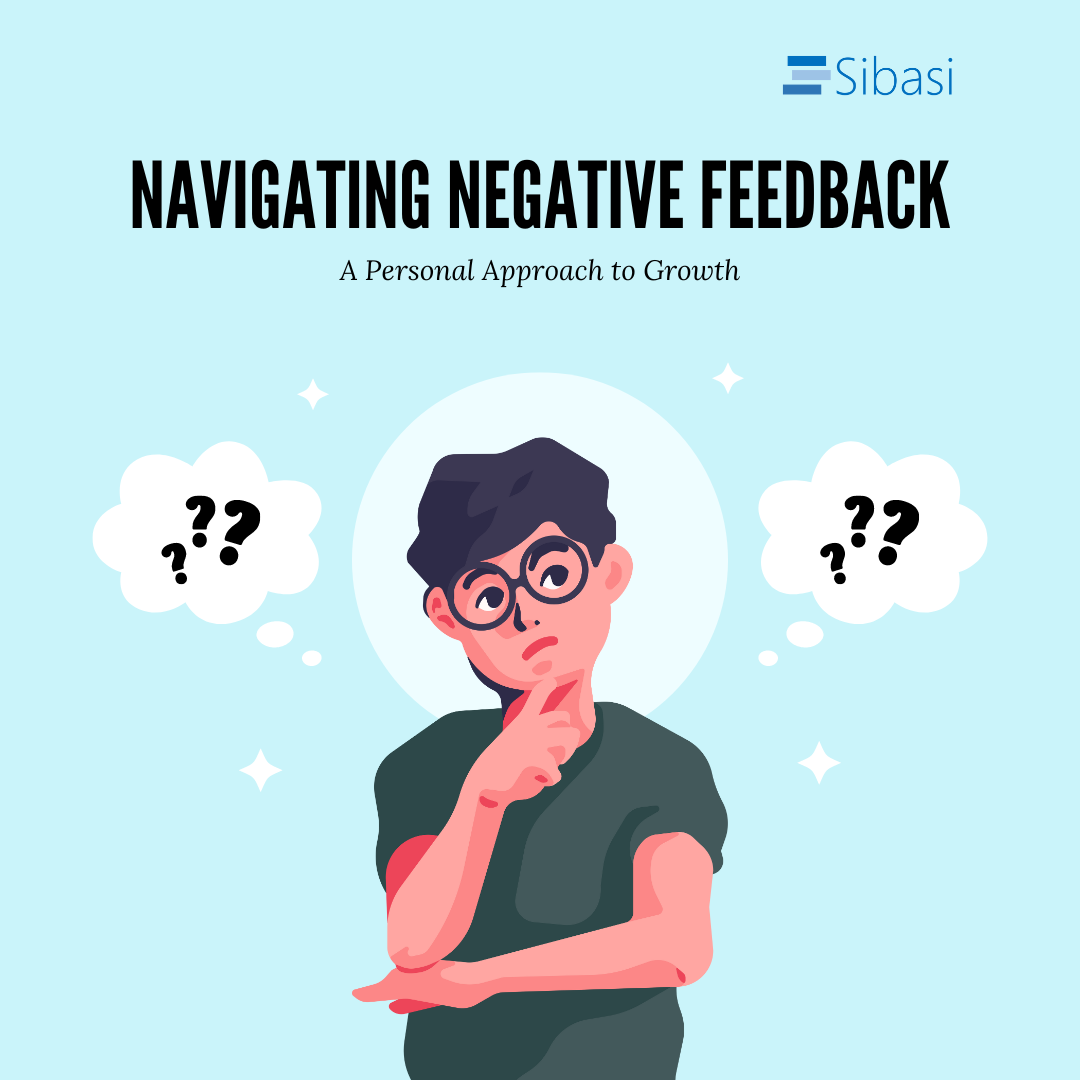
It's that time of the year again! As December unfolds, workplaces are buzzing with anticipation, speculation, and perhaps a tinge of anxiety. The annual performance reviews are upon us, and with them comes the unveiling of accolades, recognition, and yes, feedback—both constructive and, at times, challenging.
For some, this season might already have witnessed the crowning of star performers, while others find themselves facing unexpected critiques. As the year concludes and we head into the holiday festivities, how do we ensure that the feedback received doesn't cast a shadow on our celebrations or, worse, lead us into a tailspin of self-doubt and despair?
Let's delve into the art of handling negative feedback with grace and resilience, gathering insights from various corners of the interwebs.
1. Maintain Composure
In the face of critical feedback, our initial reactions are often defensive or emotional. Psychologist William Swan aptly describes this as the disorientation and psychological upheaval experienced when our self-image is threatened. Composure becomes the first step in the journey of self-awareness. Research by psychologist Tasha Eurich suggests that allowing some time to bounce back from challenging feedback before deciding the next steps is a trait commonly found in self-aware individuals.
Amidst the barrage of emotions, rather than succumbing to extreme reactions, consider the power of "affect labeling." Put your thoughts into words, e.g. "I didn't see that coming, i am shocked and a tad angry". Writing this down helps process the feelings, rather than acting them out or bottling them in.
Additionally, practice self-affirmation by reminding yourself of positive aspects of your identity. For instance, if the feedback highlights lackluster communication, pivot to a positive aspect like being a responsive individual in other aspects of your life.
2. Acknowledge and Validate Concerns
Acknowledging and validating concerns in the face of feedback is crucial for several reasons. Firstly, it builds a foundation of trust within the work environment. When individuals feel that their feedback is not only heard but also respected, it creates a sense of trust and openness. This, in turn, contributes to a positive and collaborative atmosphere where team members are more likely to share their thoughts and concerns openly.
Secondly, this practice encourages a growth-oriented culture. By acknowledging concerns, individuals and teams signal that they are receptive to learning and improvement. In a culture that values growth, mistakes and feedback become opportunities for development rather than reasons for blame or criticism. This mindset fosters innovation and continuous improvement.
Moreover, acknowledging and validating concerns contribute to effective communication. When feedback is acknowledged, it encourages honest dialogue, allowing for a deeper understanding of different perspectives. This open communication is essential for resolving issues, addressing challenges, and fostering a cohesive team environment.
Ultimately, by recognizing and respecting concerns raised through feedback, organizations create a work culture that is not only supportive but also conducive to ongoing learning and success. It lays the groundwork for a collaborative, trusting, and growth-oriented environment where individuals feel empowered to contribute their best efforts.
3. Dig Deeper - Ask Questions
Understanding and acting on feedback necessitates a deeper comprehension, particularly when it introduces something new, for several compelling reasons. Firstly, feedback often serves as a mirror, reflecting aspects of our performance or behavior that may not be immediately apparent to us. By delving into a deeper understanding, individuals can grasp the nuances and intricacies of the feedback, gaining insights that may have been overlooked initially.
Secondly, feedback is most valuable when it introduces novel perspectives or suggests changes in behavior or approach. A surface-level understanding may lead to misinterpretation or missed opportunities for growth. Therefore, a deeper comprehension is crucial for individuals to fully grasp the context, intentions, and potential implications of the feedback.
Moreover, when feedback introduces something new, it might challenge existing beliefs or practices. A thorough understanding is necessary to assess the validity and relevance of the new information. This process of comprehension enables individuals to discern whether the feedback aligns with their goals, values, and the broader objectives of their work.
In essence, deeper comprehension ensures that feedback is not just received but actively processed and integrated. It empowers individuals to make informed decisions about how to incorporate the feedback into their personal and professional development, leading to more meaningful and sustainable improvements.
4. Implementation: Low Hanging Fruit
Identifying low-hanging fruit, or readily achievable goals, is crucial for several reasons when implementing feedback. Firstly, these easily attainable objectives serve as early indicators of the positive impact of incorporating feedback, providing tangible evidence that the suggested changes are on the right track.
Secondly, focusing on low-hanging fruit contributes to building momentum and motivation, offering quick wins that boost confidence and morale within individuals or teams. Moreover, these achievable goals act as practical guides for refining strategies, allowing for a targeted approach to making improvements based on the most accessible and impactful changes.
In essence, the pursuit of low-hanging fruit is essential for gauging progress, maintaining motivation, and strategically refining implementation strategies in response to feedback.
Conclusion
In every piece of negative feedback lies an opportunity for growth. Rather than viewing it as a setback, see it as a stepping stone toward improvement. After a less-than-perfect performance review, take specific feedback to heart, identify areas for development, and create an action plan. This proactive approach not only showcases your commitment to personal growth but also earns the respect of your superiors and colleagues.
As we navigate the grand finale of this year's performance, let's embrace the feedback, transform challenges into opportunities, and stride confidently into a future of continuous improvement and success.







